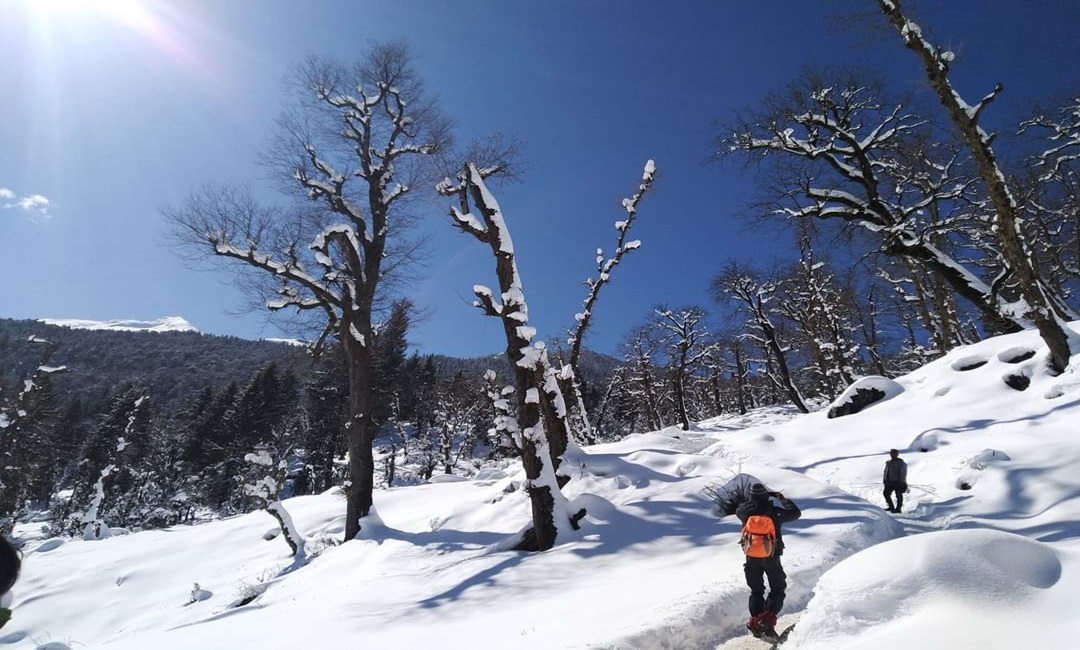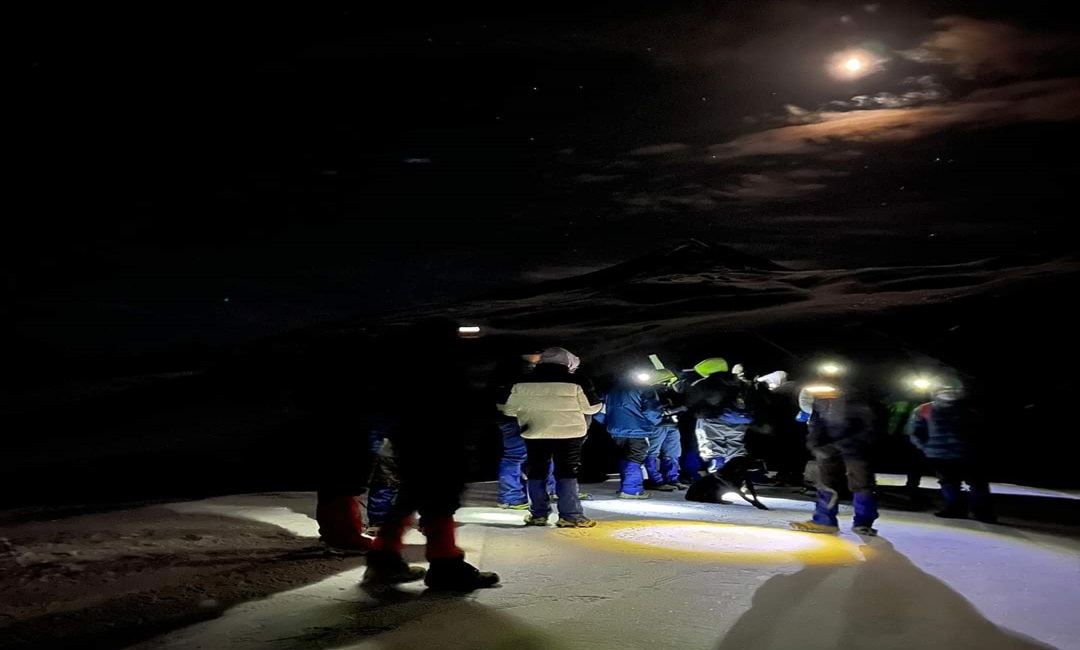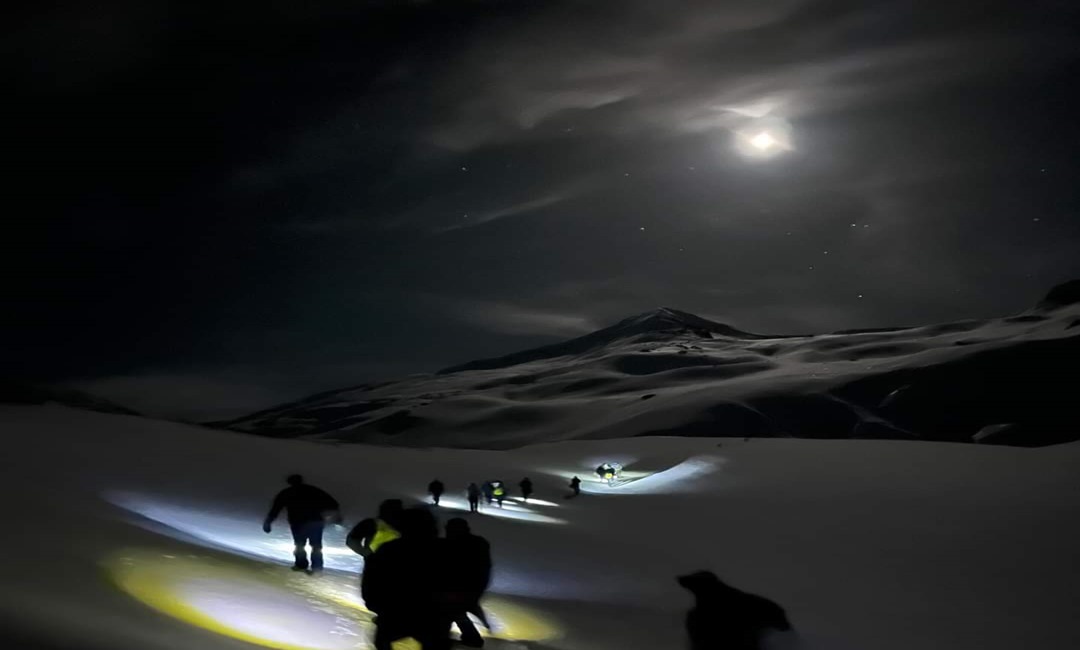Enquiry
Your Review
Short Itinerary
|
Day 1 |
RISHIKESH TO KARCHI - 255 km |
Travel Time: 9-10 hours. |
|
Day 2 |
KARCHI TO AKHROTGHETTA - 2.75 km |
Trek Time: 5-6 hours. |
|
Day 3 |
AKHROTGHETTA TO KHULLARA - 2.5 km |
Trek Time: 4-5 hours. |
|
Day 4 |
KHULLARA TO TALI VIA KUARI PASS - 7.7 km |
Trek Time: 8-9 hours. |
|
Day 5 |
TALI TO AULI. DRIVE TO DHAK - 8.10 km |
Trek Time: 7-8 hours |
|
Day 6 |
DHAK TO RISHIKESH - 263 km |
Trek Time: 9-10 hours. |
Overview
Kuari Pass trek is a mesmerizing journey through the Himalayas, offering stunning views and unforgettable experiences. Trekking through lush forests, quaint villages, and alpine meadows, you'll ascend to high mountain passes like Kuari Pass, which stands at an elevation of over 12,000 feet. Along the way, you'll be treated to panoramic vistas of snow-capped peaks, colorful rhododendron forests, and crystal-clear streams. The trek also provides opportunities to immerse yourself in the local culture, interacting with friendly villagers and learning about their way of life. Whether you're a seasoned trekker or a novice adventurer, the Kuari Pass trek promises adventure, natural beauty, and a sense of accomplishment as you conquer challenging trails and discover the breathtaking landscapes of the Himalayas.
Drive from RISHIKESH TO KARCHI
- Drive Distance: 255 km
- Drive Duration: 9-10 hours
Embark on an awe-inspiring 9-10 hour drive covering 255 km. As you leave Rishikesh, the journey unfolds like a tapestry of natural wonders. Traverse through quaint towns, meandering rivers, and lush valleys. Witness the holy Ganges flowing beside you, adding a spiritual touch to the scenic route.
Trek from KARCHI TO AKHROTGHETTA
- Trek Distance: 2.75 km
- Trek Duration: 5-6 hours
- Altitude Gain: 7,785 ft to 9,264 ft
Embark on a 2.75 km trek for 5-6 hours, ascending from 7,785 ft to 9,264 ft. The trail takes you through enchanting forests adorned with diverse flora. As you climb, catch glimpses of the surrounding mountains, their majestic peaks playing hide-and-seek through the foliage.
AKHROTGHETTA TO KHULLARA
- Trek Distance: 2.5 km
- Trek Duration: 4-5 hours
- Altitude Gain: 9,264 ft to 11,014 ft
Cover 2.5 km in 4-5 hours, reaching an altitude of 11,014 ft from 9,264 ft. The trek opens up to expansive alpine meadows, offering breathtaking views of the surrounding Himalayan peaks. The landscape becomes a canvas of colors, with vibrant flowers dotting the meadows.
KHULLARA TO TALI VIA KUARI PASS
- Trek Distance: 7.65 km
- Trek Duration: 8-9 hours
- Altitude Gain and Loss: 11,014 ft to 12,516 ft to 11,053 ft
Trek 7.65 km over 8-9 hours, experiencing an altitude change from 11,014 ft to 12,516 ft. Today's highlight is conquering Kuari Pass, providing a panoramic spectacle of snow-capped peaks. The play of light on the mountains creates a mesmerizing visual feast.
TALI TO AULI. DRIVE TO DHAK (Trek and Drive)
- Trek Distance: 8.10 km
- Trek Duration: 7-8 hours
- Altitude Loss: 11,053 ft to 8,546 ft
Trek 8.10 km in 7-8 hours, descending from 11,053 ft to 8,546 ft. Auli, with its stunning views, greets you. Later, drive to Dhak through picturesque landscapes, offering a serene transition from the high-altitude trek.
Please note that trekking times are approximate and may vary based on individual and group fitness levels. The itinerary is subject to weather conditions and other unforeseen circumstances.
DEPART FROM DHAK TO RISHIKESH (Drive)
- Drive Distance: 263 km
- Drive Duration: 9-10 hours
Bid farewell to Dhak and embark on the drive back to Rishikesh. Reflect on the trek's experiences, from the challenging ascents to the serene meadows, as you travel through the diverse terrains of the region.
Policies
Ensuring Safety, Compliance, and Conservation
- At Trekvento, we prioritize the safety of our trekkers, uphold environmental conservation, and ensure compliance with trekking regulations. Our policies are designed to provide a safe and enjoyable trekking experience while preserving the natural beauty of the Himalayas.
Trekkers Safety Measures
- Qualified Guides: Every trek is led by experienced and certified trek leaders who prioritize safety and have extensive knowledge of the trekking routes.
- Emergency Protocols: Detailed emergency protocols are in place, including first aid training for staff and evacuation procedures in case of emergencies.
- Equipment Inspection: Regular inspection and maintenance of trekking gear and equipment to ensure reliability and safety during the trek.
- Altitude Acclimatization: Trek itineraries are carefully crafted to allow for gradual altitude acclimatization, minimizing the risk of altitude sickness.
- Weather Monitoring: Continuous monitoring of weather conditions to anticipate and mitigate potential risks.
Trek Regulations and Compliance:
- Permits and Permissions: Adherence to all necessary permits and permissions required for trekking in protected areas, ensuring legal compliance and environmental conservation.
- Leave No Trace Principles: Implementation of Leave No Trace principles to minimize environmental impact, including proper waste disposal and responsible camping practices.
- Respect for Local Culture: Respectful interaction with local communities, adherence to cultural norms, and support for local economies through responsible tourism practices.
- Group Size Limits: Maintain manageable group sizes to minimize ecological impact and ensure personalized attention and safety for all trekkers.
- Wildlife Conservation: Respect wildlife habitats and observe wildlife from a distance, without disturbing their natural behavior or environment.
Trek Rules and Guidelines:
- Mandatory Briefing: All trekkers are required to attend a pre-trek briefing covering safety protocols, environmental ethics, and trekking guidelines.
- Stay on Designated Trails: Trekkers must stay on designated trails to minimize soil erosion and habitat disturbance, ensuring the preservation of delicate ecosystems.
- No Smoking and Alcohol: Smoking and consumption of alcohol are strictly prohibited during the trek time to maintain a healthy and safe environment for all participants.
- Follow Guide Instructions: Trekkers must follow the instructions of the trek leaders and guides at all times, especially during emergency situations or challenging terrain.
Conclusion: At Trekvento, we are committed to providing a safe, sustainable, and memorable trekking experience for all our participants. By adhering to our trek policy, trekkers can enjoy the beauty of the Himalayas while contributing to environmental conservation and respecting local communities.
FAQs
What things each trekker should carry ?
Footwear:
- Waterproof trekking boots, comfortable sneakers, and flip-flops.
- Woolen socks for warmth.
Backpack:
- Main backpack (50 liters), daypack (20-30 liters), and a duffel bag.
Clothing:
- Waterproof jacket and trousers, fleece jacket, thermal innerwear, t-shirts, trekking pants, and shorts.
- Additional warm layers like sweaters and down jackets.
- Hats, gloves, and scarves for hand and head protection.
Accessories:
- Sunglasses, water bottle, hydration bladder, headlamp, and spare batteries.
Trekking Gear:
- Emergency toolkit, sunscreen, toiletry kit, water purification tablets, Ziploc bags, earplugs, and first-aid kit.
Additional Items:
- Towel, raincoat or poncho, lip balm, and sunscreen lotion.
- Trekking pole or walking stick for stability.
- Medications and personal toiletries.
- Rain cover for your backpack and a small daypack for essentials during the day.
- Poly bags or plastic containers for organizing items during heavy weather.
What happens if I cancel the trek?
-
Trek Cancellation by TrekVento:
- If a trek is canceled due to natural disasters or unforeseeable circumstances, you'll receive a full trek voucher valid for one year.
-
Your Cancellation:
- Canceling 30 or more days before the trek: Full refund.
- Canceling between 30 and 15 days before the trek: 60% refund.
- Canceling less than 15 days before the trek: No refund.
- Refunds are subject to a 4% deduction as cancellation charges.
- Trek insurance refunds are not provided.
-
Responsibility:
- Discoveryhike is not liable for any damage or injury to your belongings during the trek.
- The trek fee covers all trek expenses from start to finish.


